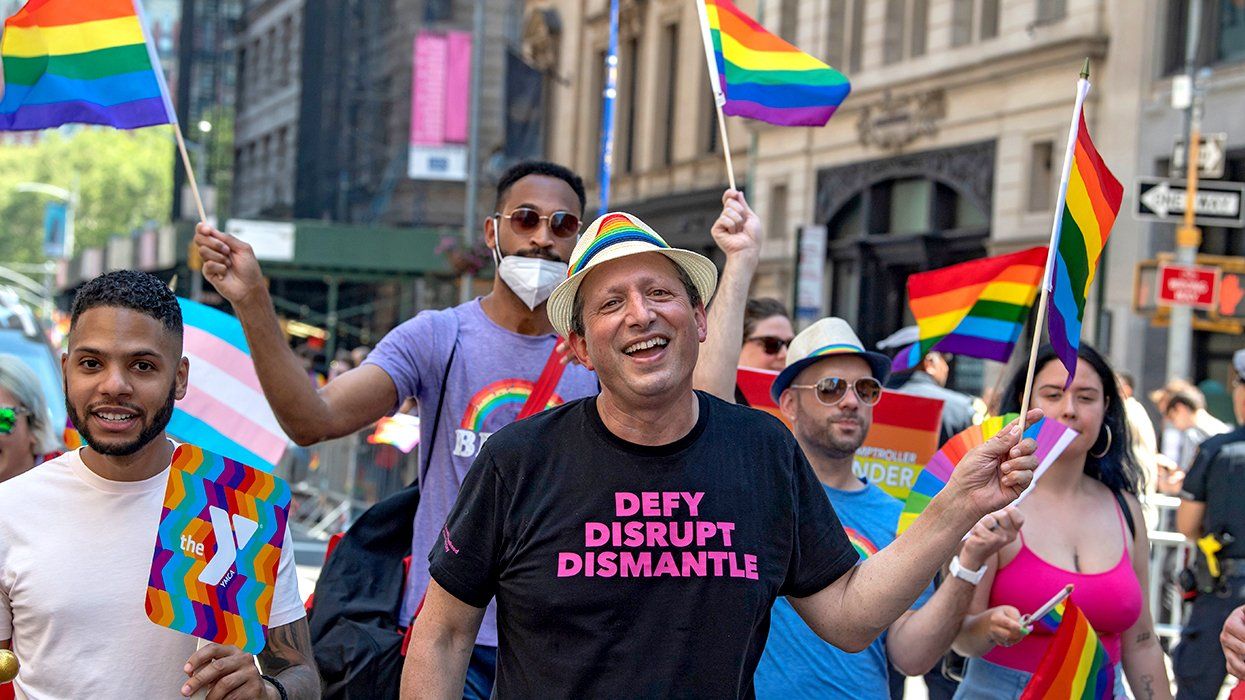In 2024, the world will witness a historic wave of elections. With nearly half the world’s population in at least 64 countries heading to the polls, the outcomes of these elections will undoubtedly have far-reaching consequences for years to come, including for the LGBTQ+ movement and individuals worldwide.
From Russia to Taiwan and the United States to South Africa, these presidential and legislative contests hold immense implications for human rights, economies, international relations, and prospects for peace in our volatile world. The significance of these elections cannot be overstated, especially when it comes to the rights and well-being of the LGBTQ+ community.
Taiwan recently secured a third consecutive presidential term for the Democratic Progressive Party, under which recognition of same-sex marriage and laws protecting LGBTQ+ individuals from discrimination are significant milestones. Across Asia, there were stories of hope as Japan passed a law protecting LGBTQ+ people from “unfair discrimination,” and legislative and judicial decisions on marriage equality in Thailand and Nepal took a significant step toward approval.
However, not all countries are moving progressively. Russia, for example, stands as a stark example of how the LGBTQ+ movement is weaponized to gain political leverage. The upcoming presidential election in Russia is a cause for concern, as the government has intensified its efforts to marginalize and persecute LGBTQ+ activists. For almost two decades, Russia has been leading a multi-faceted attack on the rights of queer individuals, implementing restrictive laws and, most recently, declaring the “international LGBT public movement” as extremist. With President Putin set to win yet another term, the human rights of LGBTQ+ people in the country are not looking bright in an election that is blatantly not free nor fair.
The United States, a country with a complex history of LGBTQ+ rights, has seen progress and setbacks in recent years. The Biden administration has taken significant steps to protect the community’s rights, signing landmark legislation such as the Respect for Marriage Act and advocating for the Equality Act. At the same time, 2023 saw over 500 anti-LGBTQ+ laws proposed at the state level, and LGBTQ+ lives are increasingly weaponized in parts of the country. It seems likely that these attacks, especially on trans people, will continue throughout the election season and beyond.
South Africa, hailed for its progressive constitution, faces challenges in the upcoming elections. The right to same-sex marriage is protected by law, a hard-fought victory after decades of struggle against apartheid. However, the announcement of Jacob Zuma’s intention to campaign against the rights of LGBTQ+ people raises concerns. During an election campaign, the disgraced former president suggested laws that protected rights for same-sex individuals did not enjoy support from the majority of South Africans. While Zuma is unlikely to win, his support base could exacerbate an already volatile environment for individuals who continue to face hate crimes, hostility, and discrimination.
It is disheartening to see campaigns seeking to undermine the rights of LGBTQ+ people often exploit the notion of “family values.” In Ghana, for example, the Human Sexual Rights and Family Values Bill threatens to further marginalize and discriminate against the queer community. Ghana is also heading to the polls this year, and it seems LGBTQ+ individuals’ fundamental human rights or lack thereof, will be the election ticket.
As we enter this super-election year of 2024, we must recognize the significance of these elections and their potential impact on the global LGBTQ+ movement. The outcomes will shape the future of human rights, equality, and acceptance for LGBTQ+ people worldwide. In addition to ensuring rights are upheld, we must also ensure that LGBTQ+ people’s participation in these elections is guaranteed. A trans person should not be discouraged or stopped from taking part in the democratic process because their ID does not reflect who they are today.
We have much work to do to counter the enemies of progress who, ironically, use the democratic process to violate human rights. The time for change is now, and the power to make a difference lies in the hands of voters around the world.
Maria Sjödin is the Executive Director of Outright International, a global champion in strengthening the capacity of the LGBTQ+ movement, documenting and amplifying human rights violations, and advocating for inclusion and equality for all. Learn more about them on their website at outrightinternational.org.
Want to share an opinion on an issue? Have an inspiring personal story to tell? Learn more by visiting advocate.com/submit.















Charlie Kirk DID say stoning gay people was the 'perfect law' — and these other heinous quotes
These are some of his worst comments about LGBTQ+ people made by Charlie Kirk.